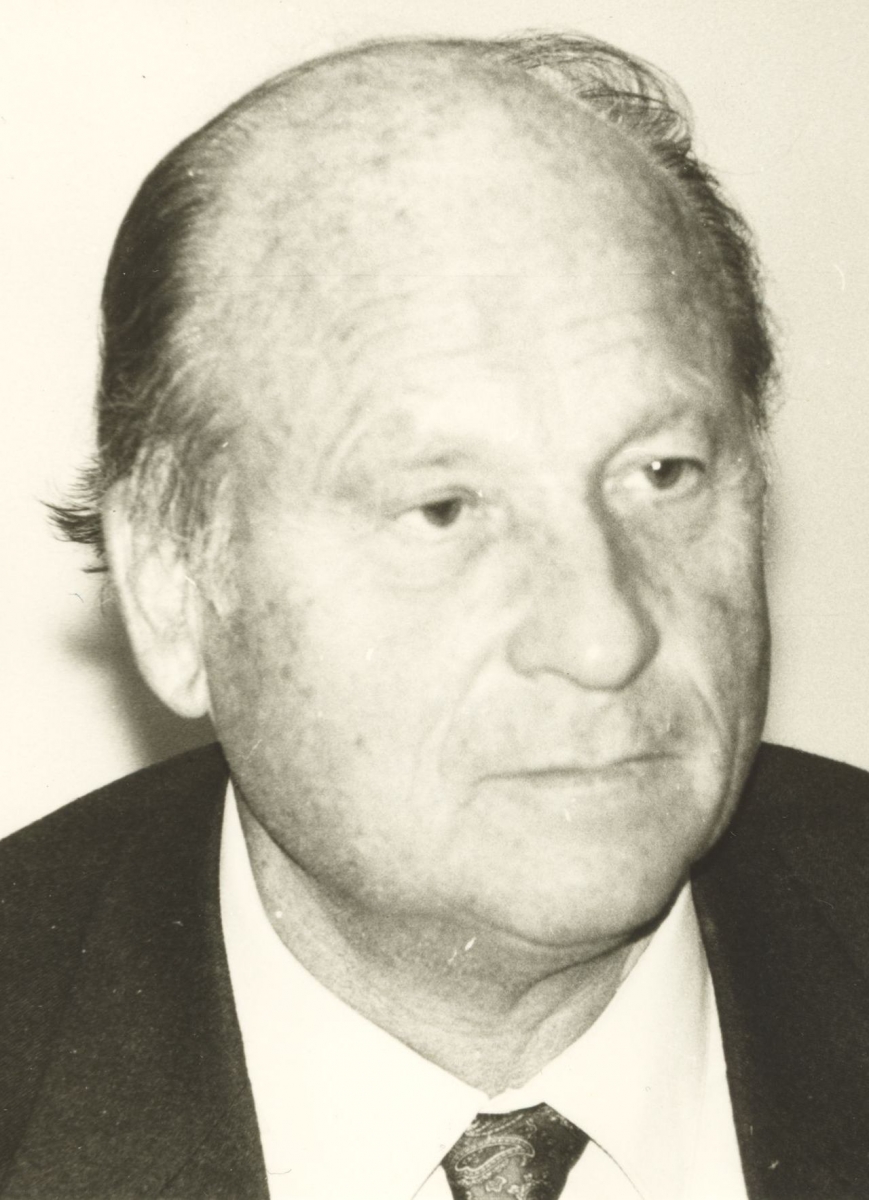
Hellar Grabbi
Hellar Grabbi (22. IX 1929 – 28. VII 2018) was an Estonian publicist, critic, editor, and publisher in exile. His father was Colonel Herbert Grabbi, Commander of the Estonian Military School and aide-de-camp of the Estonian president, arrested by the NKVD in 1941 and executed in Taymyr Peninsula in northern Siberia. Hellar Grabbi studied at the National English College in Tallinn, the primary school of the Teachers’ Seminary, and at Tallinn Secondary School of Science. After he escaped to Germany with his mother and brother in September 1944, he studied at the Geislingen Estonian Gymnasium. From 1949–1950, he continued his studies in English and American literature and philosophy at William Jewell College in Missouri, U.S.A. From 1955–1957, he studied library science at the University of Columbia in New York and completed his master’s degree. He worked in the United States from 1949–1958 in various areas, mainly as a construction worker. He then worked in the Washington Library of Congress from 1959–1967. He lived in Alexandria, Virginia.
From 1955–1964, Grabbi was an editor of Vaba Eesti (‘Free Estonia’), a journal for the younger and more liberal Estonian refugee generation. In 1958, he began representing the cultural and literary journal Mana in the United States, later becoming its editor-in-chief and publisher in 1965. Passed illegally by hand throughout occupied Estonia, Mana, a periodical almanac, greatly influenced the shaping of the Western mentality there, and in turn, Estonian refugees abroad could read work by authors at home, which, because of Soviet censorship, would not otherwise be published. Grabbi edited multiple poetry collections and other books by both domestic and exiled Estonian authors. He was the secretary of the Global Estonian Literary Society from 1950–1958, a member of the Estonian PEN Club, chairman of the Alumni Association of the Estonian Student Union in the US, a member of the student fraternity Rotalia, and a founding member of the Association for the Advancement of Baltic Studies (AABS).
Grabbi visited Soviet Estonia several times between 1968 and 1978 and published his impressions in Mana. After his visa was rejected, it was another ten years before he could visit his homeland again. Grabbi started publishing articles on politics and culture in 1955, including reviews in the journal Books Abroad / World Literature Today. He also contributed to many domestic Estonian publications, especially after Estonia regained its independence. He became an active correspondent for Radio Liberty and Radio Free Europe in 1974.
As a socially-minded nationalist, Grabbi actively participated in the restoration of the Republic of Estonia. He was an advisor of the election coalition Estonian Citizen in 1992 and the head of the North American group of advisors in exile to the President of the Republic of Estonia (1991-1992). He was awarded the Order of the White Star, III Class (2000) and Order of the National Coat of Arms of Estonia, III Class (2006) for his political contributions. In 2012, he received the annual Estonian National Culture Award for his long-time cultural activities.
As an advocate for a united Estonia, Grabbi was involved with published works by both domestic and refugee writers. His essays and reviews were collected into the books Vabal häälel (‘In a Free Voice’, 1997) and Tulgu uus taevas (‘Come New Heaven’, 1999). He and his brother, Rein Grabbi, also published their father’s book Maailmasõda (‘World War’, 1996). He translated the study ‘The New Class: An Analysis of the Communist System’ (published in Estonian in 1958) by the Yugoslavian Communist dissident Milovan Djilas. Additionally, he compiled the article collection Vaba Eesti tähistel (‘Signs of Free Estonia’, 2000) and the essay collection Eestlaste maa (‘Land of Estonians’, 2004). Grabbi authored four memoirs: Vabariigi laps (‘Child of a Free Republic’, 2008, winner of the Literature Endowment Annual Award), Seitse retke isamaale (‘Seven Trips to the Fatherland’, 2010), Seisata, aeg (‘Stand, Time’, 2012), and Neli presidenti (‘Four Presidents’, 2014). The latter features memoirs about Konstantin Päts, Lennart Meri, Arnold Rüütel, and Toomas Hendrik Ilves. His correspondence with Andres Ehin in the 1960s was published in the article collection Täiskui: Andres Ehin (2012) and a similar correspondence with Jaan Kaplinski was compiled into the book Sõprade kirjad on su poole teel (‘Letters from Friends Are on Their Way’, 2013).
A. M. (Translated by M. M.)
Books in Estonian
Non-fiction
Vabal häälel: Mõtteid kahesajast eesti raamatust. Tallinn: Virgela, 1997, 302 lk.
Tulgu uus taevas: Mõtteid viiekümnest kirjanikust. Tallinn: Virgela, 1999, 277 lk.
Eestlaste maa. Tartu: Ilmamaa, 2004, 501 lk. [Eesti mõttelugu, 56.]
Vabariigi laps: mälestuslikud esseed. Tartu: Ilmamaa, 2008, 379 lk. [2. trükk: 2009.]
Seitse retke isamaale: Mälestuslikud esseed. Tartu: Ilmamaa, 2010, 453 lk.
Seisata, aeg!: Mälestuslikud esseed. Tartu: Ilmamaa, 2012, 405 lk.
Sõprade kirjad on su poole teel: Jaan Kaplinski ja Hellar Grabbi kirjavahetus 1965–1991. Tartu: Eesti Kirjandusmuuseumi Teaduskirjastus, 2013, 331 lk. [Litteraria, nr 26.]
Neli presidenti: Mälestuslikud esseed. Tartu: Ilmamaa, 2014, 480 lk.
Bibliography
Hellar Grabbi: Bibliograafia. Koostaja Anne Valmas. Tallinn: Teaduste Akadeemia Kirjastus: 2013, 129 lk.



